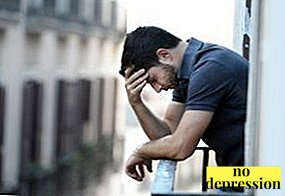
Why there is a deja vu effect
Surely, at least once in your life, you had a deja vu effect, the feeling that everything that happens in real reality repeats itself, and you know what will happen next for a few moments or seconds. Perhaps this feeling comes to you quite often or even haunts you, in fact, for this reason you are most likely interested in why it occurs.
This unique phenomenon by its nature carries within itself some mystery of the unknown and mystical. But is it really mysticism or a normal process of brain activity?
In the book "The Psychology of the Future," the famous psychologist Emil Bouarak first used the term "deja vu" (which means "already seen"). Previously, this phenomenon was characterized as "paramnesia" - deceptions of memory in case of disturbance of consciousness or as "false recognition".
Currently, this phenomenon is still not fully understood and causes an increased interest not only from ordinary people, but also from scientists, psychologists, magicians and sorcerers. There are several assumptions about what is actually such a deja vu effect and why it arises.
In addition, there is an opposite phenomenon, which is called “zhamevyu” and characterizes the opposite effect - not recognizing familiar things or people. This phenomenon differs from the well-known memory loss in that this effect occurs suddenly. For example, during a conversation with your best friend, you just catch yourself thinking that you are not familiar with this person and do not know anything about him. Occurs in practice, "jammevu" is very rare, but still has a place to be.
In 1878, scientists suggested that the deja vu effect occurs due to fatigue, when the processes of perception and awareness are violated. In other words, in response to the question "Why the deja vu effect occurs," according to scientists, the first assumption can be made that this happens because of fatigue, overload or overwork.

William H. Bernham (American physiologist) in 1889 put forward the exact opposite opinion. He argued that this phenomenon occurs as a result of brain activity, when the processes run much faster. He said that this is more likely to occur after a good and productive rest, when the mind and mind are clear, the brain understands much faster and better, and therefore a person is able to see the situation as if it is familiar to him.
There is also a version of the fact that the effect of deja vu is closely related to dreams. As a matter of fact, most people who have experienced this condition tend to believe that what is happening has already been seen in a dream. But scientists do not reject this hypothesis either, and in 1986, psychology professor Arthur Allyn put forward the assumption that The deja vu effect is a kind of forgotten dreams.
The well-known Sigmund Freud also wondered why the déjà vue effect arises and advanced his version. In his opinion, the effect of deja vu is no more than a person’s subconscious fantasies that arise spontaneously.
Also in psychology there is an opinion that, by the way, today it is important that there are areas in the brain that are responsible for the past, present and future tense. Since there are no clear boundaries and time frames, this can be the cause of this phenomenon.
But be that as it may, the effect of deja vu is still being actively studied by scientists and psychologists. Even the fact that there is no clear and unambiguous opinion on this matter, one can say for sure that the effect of deja vu does not pose any danger to a person and does not bear negative coloring. Therefore, it remains only to guess for what reasons this sensation arises.



